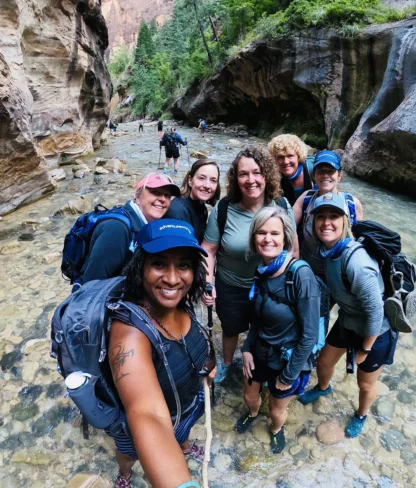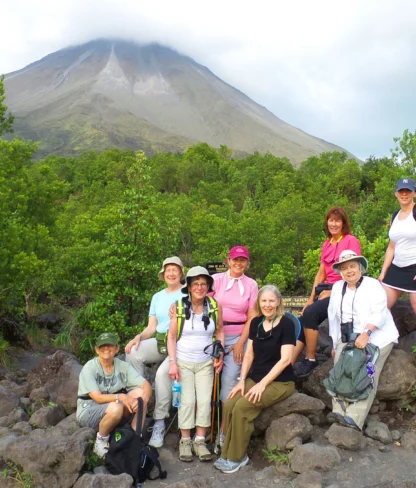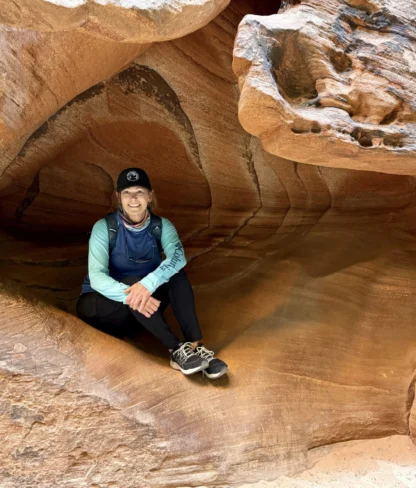9 Lessons from the Wild that Will Help You Get Ahead in Business
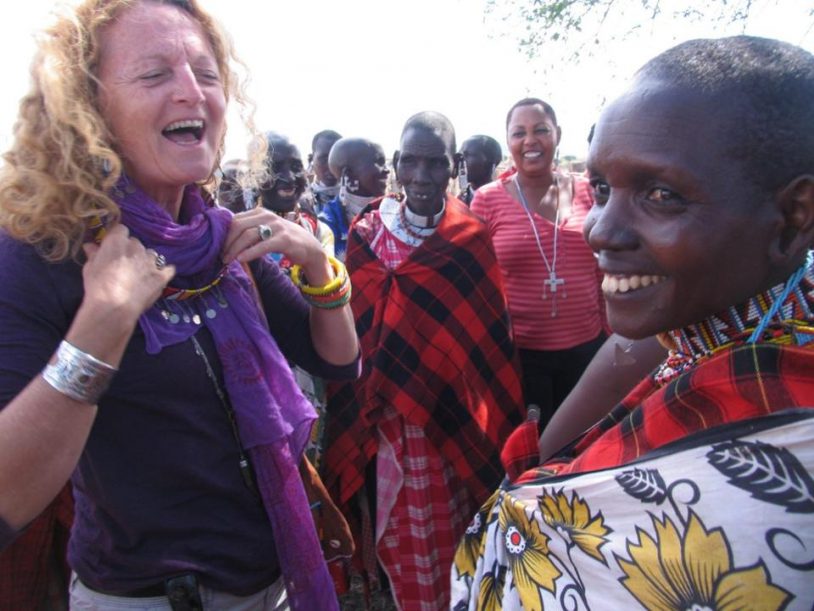
By Laura Begley Bloom at Forbes
This article originally appeared in Forbes – July 26, 2017
Judi Wineland is a bit of a legend in the travel space. The first woman to launch and operate an adventure travel company, she created Overseas Adventure Travel in 1978, then went on to further break the industry’s glass ceiling, co-founding Thomson Safaris and more.
Now, together with her two daughters, Nicole Wineland-Thomson and Erica Landerson, Wineland hopes to change the travel landscape with her latest venture: AdventureWomen, an adventure travel company run by women for women. The aim? To empower women through travel, help women in developing countries and connect women around the world.
They’re doing this by curating life-changing experiences — trekking the Himalayas, surfing in Baja, horseback riding through Iceland — as well as women-to-women experiences with local communities like the Inuits in the Arctic and the Maasai in Tanzania.
We caught up with the “Wineland Trio” and found out how the lessons they’ve learned from the natural world — both the people and the animals — can be converted to the modern business world.
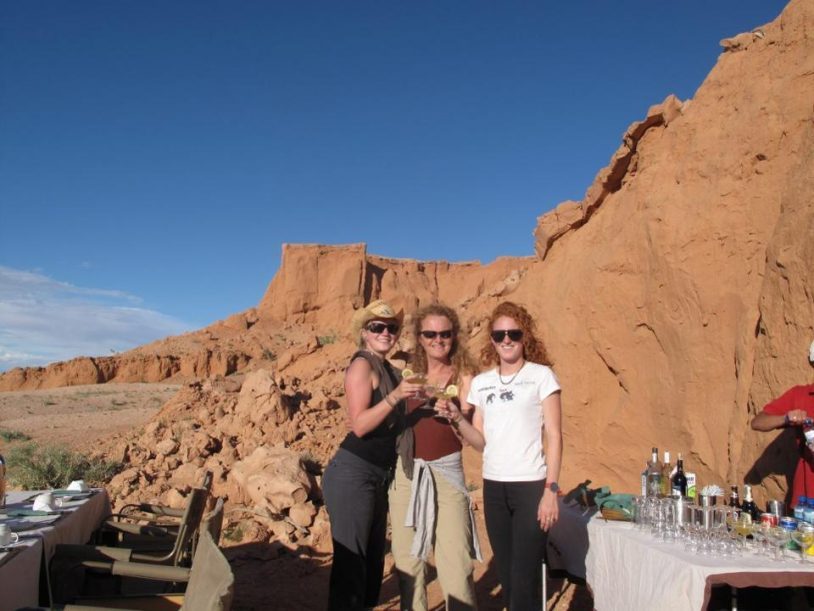
The Wineland Trio. AdventureWomen founders (from left) Nicole Wineland-Thomson, Judi Wineland and Erica Landerson.
1. Support the herd — and your community.
Judi: I’ve learned from the Maasai women how to appreciate, understand and honor other women in business. They foster relationships with fellow women leaders and grow together to help one another. I, too, believe empowering other women can create a network of strong leaders. I have been supporting a microfinance project in Tanzania, COCOBA, which invests in women through education, teaching Maasai women to open small, environmentally friendly businesses. All of our AdventureWomen itineraries offer women-to-women experiences like meeting with female students at the first “shedra” (Buddhist university) for women in Bhutan. We believe building bridges and connecting empowered women around the world will inspire new generations of women leaders.
The lesson: Fostering strong connections with other women makes you (and them) stronger.
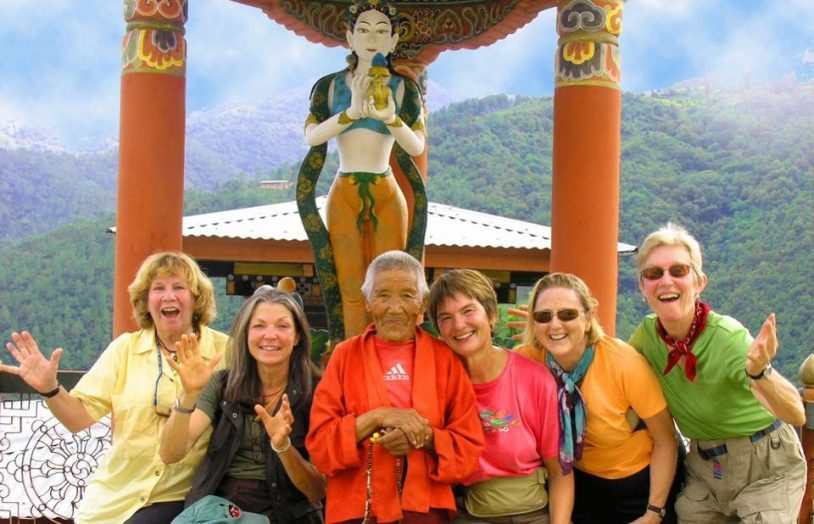
A cultural and humanitarian AdventureWomen trip in Bhutan.
2. If you’re kicked out of the pride, stay strong.
Judi: It’s so important to stay strong, especially when faced with an “old boys club” culture. Working with Maasai has taught me this lesson. The Maasai are patriarchal, so it is understandable that they seek the advice and “ear” of other men. For example, in a recent dedication of a school room in Maasailand in Tanzania, the plaque that was put on the wall thanked my husband Rick Thomson, who was not involved in the project. Through experiences like this, I have learned it is important to be willing to stand up to the status quo when necessary and always stay strong in the face of challenges such as these while always being culturally aware and sensitive to your audience and community context.
The lesson: Maintain strength in the face of adversity; don’t be defeated by the “old boys club.”

Maasai women dancing in Tanzania.
3. Know your place in the eco-system.
Nicole: In the bush, animals always watch the other predators. It’s the same in business. Monitoring your competition keeps you current and prepared, but what is equally important is researching what your customers really want from you. Know where you stand in the market and what your core competencies are – understand why your clients come to you. For example: There are lots of other operators out there offering extreme adventure travel for women, but that’s not us. We are happy to give this share of the market to our fellow adventure travel operators because that isn’t our core strength, that’s not our market. We offer active adventure with added cultural experiences for off-the-beaten-path, deeper experiences. We spend a lot of time researching our destinations to find the best mix of activities that matter most to our customers based on trip evaluations and one-on-one feedback. We’ve recently created an advisory board of women who have traveled with AdventureWomen over the years who actively advise us about potential opportunities and ideas for future trips. We don’t just listen to our clients, we let them participate in product development.
The lesson: Know your limits and where you stand in the market.
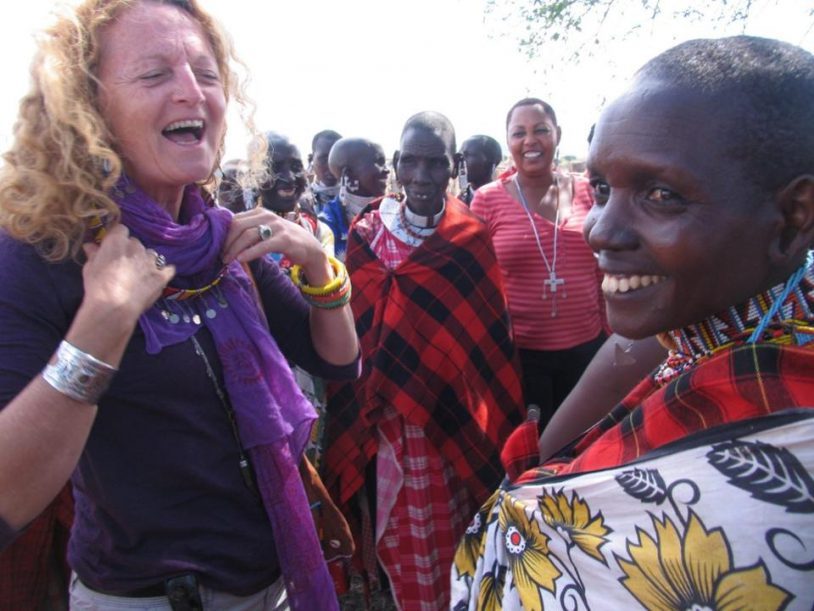
Judi Wineland with some of the local women in Enashiva, Tanzania.
4. Mate for survival.
Erica: Just as animals choose their partners for survival reasons, you should do so in business for equally strategic reasons. Loyalty to your clients and employees makes for stronger relationships — and ultimately for a stronger business model. When clients feel valued, they reward you with more business. When employees feel trusted and respected, they take pride and ownership in their work, which shows in the end product. This is true from the office staff to the third-party operators to the guides on the ground. Mutual respect makes everyone care about their role in helping to make the brand and company high quality and be proud of their contributions. It’s the same in the animal world.
The lesson: Be loyal to your customers and employees and honor their needs.
5. Look for the weakest link in the food chain.
Nicole: Animals do this all the time — they prey on the weakest link. Often times, companies seem too afraid to seek out the weakest link or to admit their weaknesses. Before we put any AdventureWomen trip into motion, we look at the detailed itinerary and hunt for the “weakest links.” Where might we encounter a transfer delay? What if a hotel overbooks, what’s our Plan B? Once we have identified these potential complications, we plan for contingencies. Early in my career, I had booked a four-star hotel with an operator. The hotel turned out to be four-star hotel by that country’s standards. The guests were not happy. I’ve since learned to not define hotels by stars in other countries, but rather by a list of criteria that meets our standards.
The lesson: Don’t be afraid to spot your weaknesses.
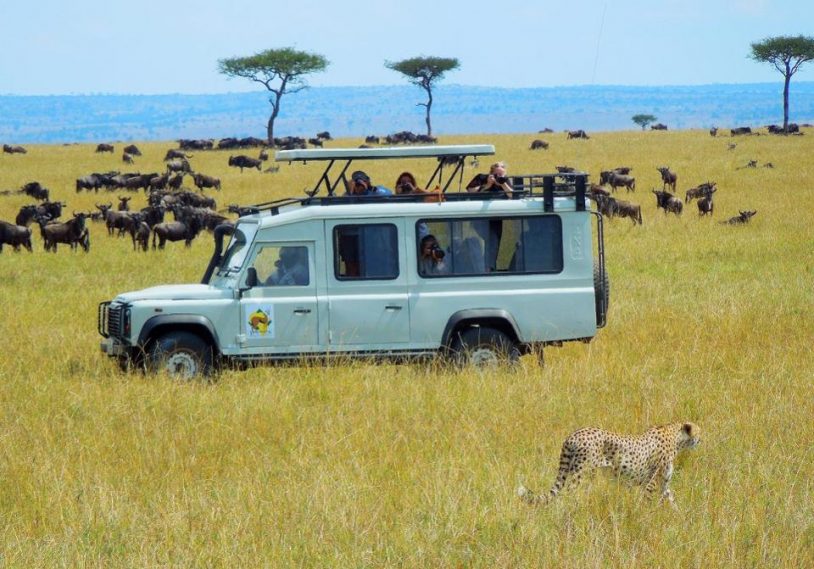
Wildlife viewing in the Serengeti.
6. Be patient while waiting for the kill.
Erica: We were working with a partner in Japan who was very eager and anxious to finalize the details. Our instincts told us something was just not right, and even though the trip was approaching soon and was sold out, we decided it was better to drop the partner and find an alternative than to risk a bad experience for our guests. It was a risky but critical decision. With everything on the line, it is still better to be patient, take your time and not rush into situations until the timing and everything else feels right.
The lesson: Don’t be so eager to get the deal done. Get it done right.
7. Don’t miss the forest for the trees.
Erica: It’s an old expression that comes from nature. It’s important to see the big view; to understand the whole picture to better serve your clients and to have a better work environment for your employees. By seeing the whole picture, it enables leaders to look for opportunities to reinvent, tweak, change the model and to better understand how your product adds value to your specific audience over time and how to ensure a better company culture long term.
The lesson: See the big picture and look to the future.

Judi Wineland with Rose and some Maasai women friends.
8. Plant the right seeds and make sure to water them.
Judi: In our ground operation in East Africa we have an abundance of female managers who have risen to claim their crowns at the top of the company. They are special, they are hard-working, they are mothers and they are strong. By fostering raw talent and letting your staff grow, you create a team of dedicated supporters who will enable your company to grow even further. It is important to train, review, make them accountable, find face-to-face time, find flexibility and support — and allow for mistakes and learn from them. A good example of this is Rose, one of our top managers in Tanzania who has been with the company for over 20 years. We initially taught her how to type and then showed her how to use Excel. She has since become an Excel guru and played a major role in our company’s growth to one of the top adventure operators in Tanzania. We recently gave her an iPad to thank her for all her hard work, a small gesture on our part, but one which brought her to tears.
The lesson: Hire talent; mentor and nurture strong employees; reward and thank your team.

Nicole Wineland-Thomson, kayaking on an AdventureWomen trip.
9. Be brave.
Nicole and Erica: One of our favorite lessons is the simplest, but being brave is hard when you apply it to all aspects of your life. Being brave as a woman means sticking up for yourself in situations when it’s uncomfortable to do this. Being brave as a professional is taking risks where the potential for failure is real. Being brave as a mother means being willing to let go enough to let your children venture out on their own terms with only your words of wisdom protecting them.
